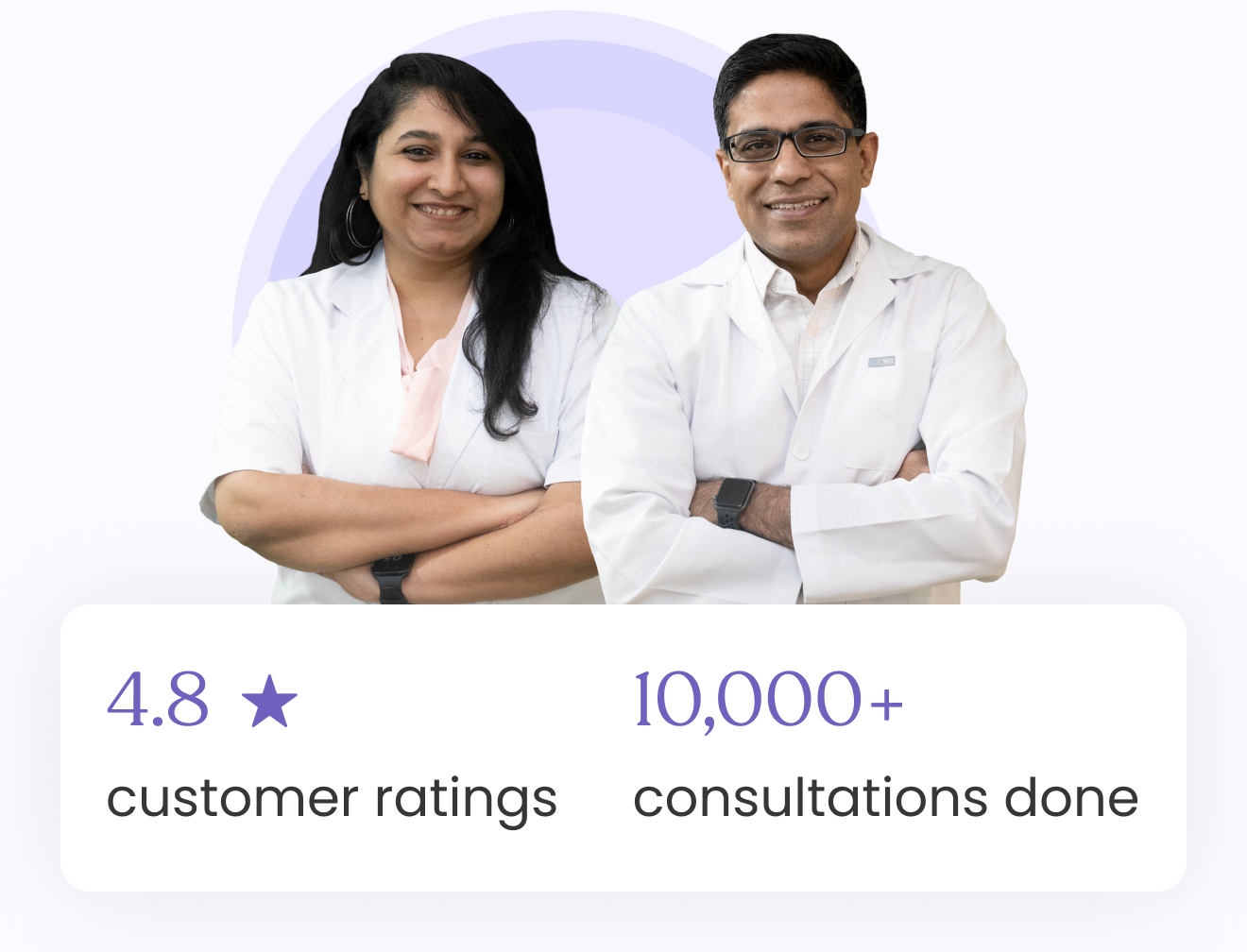Managing Herpes: Coping and Psychological Support

Allo Health is dedicated to personalized well-being, offering support and trusted information tailored to individual health goals. The platform emphasizes human-generated content, led by a distinguished medical team of experts, including physicians and sexual health specialists. Their commitment to credibility involves rigorous fact-checking, authoritative research, and continuous updates to ensure accurate, up-to-date information. Allo Health's unique approach goes beyond conventional platforms, providing expert-led insights and a continuous commitment to excellence, with user feedback playing a crucial role in shaping the platform's authoritative voice.

Dr Sanina Mansoor holds MBBS degree from Yenepoya university,Mangalore.She has 8 years of experience working as a medical officer at various health centres and medical colleges.
Why This Was Upated?
Our experts continually monitor the health and wellness space, and we update our articles when new information became available.
Updated on 10 February, 2025
- Article was updated as part of our commitment to diversity, equity, and inclusion.
"The following blog article provides general information and insights on various topics. However, it is important to note that the information presented is not intended as professional advice in any specific field or area. The content of this blog is for general educational and informational purposes only.
Book consultation
The content should not be interpreted as endorsement, recommendation, or guarantee of any product, service, or information mentioned. Readers are solely responsible for the decisions and actions they take based on the information provided in this blog. It is essential to exercise individual judgment, critical thinking, and personal responsibility when applying or implementing any information or suggestions discussed in the blog."
Herpes is a common viral infection, yet it often carries a significant emotional burden. Effective management encompasses both physical treatment and psychological support. Here’s a comprehensive guide to help you cope with herpes and find the support you need.
Understanding Herpes
Herpes simplex virus (HSV) is classified into two main types:
- HSV-1: Often causes oral herpes, resulting in cold sores around the mouth.
- HSV-2: Primarily causes genital herpes, leading to sores and blisters in the genital area.
Both types can be managed with antiviral medications, but the stigma and emotional impact can be challenging to navigate.
Accepting Your Diagnosis
Acceptance is crucial for moving forward. Initial reactions may include shock, fear, and embarrassment, but understanding that herpes is widespread and manageable can ease these feelings.
Tips for Acceptance:
- Educate Yourself: Knowledge dispels myths. Understanding the nature, transmission, and treatment of herpes can reduce fear.
- Normalise Your Experience: Millions of people have herpes. It does not define you or your worth.
- Self-Compassion: Be kind to yourself. Accept that having herpes is a part of your life but not your entire identity.

Communicating with Partners
Telling a partner about your herpes status can be intimidating, but open communication is vital for a healthy relationship.
Tips for Communication:
- Choose the Right Time: Find a private, calm moment to talk.
- Be Honest and Direct: Explain your situation clearly and provide accurate information.
- Educate Your Partner: Share facts about herpes, its transmission, and management.
- Use “I” Statements: Focus on your feelings and experiences to foster understanding.
- Prepare for Various Reactions: Understand that your partner might need time to process the information.
Managing Stress and Anxiety
Stress can exacerbate herpes outbreaks, making it important to find effective ways to manage anxiety.
Stress-Reduction Strategies:
- Mindfulness and Meditation: Practices like deep breathing, meditation, and yoga can help calm your mind.
- Physical Exercise: Regular exercise boosts mood and reduces stress.
- Healthy Diet and Sleep: Balanced nutrition and adequate sleep support overall health and stress management.
- Relaxation Techniques: Activities like reading, hobbies, or warm baths can help relax your body and mind.
Seeking Professional Help
If feelings of anxiety, depression, or stress become overwhelming, seeking professional help can be beneficial.

24x7 AI backed chatbot for all your sexual health related queries
When to Seek Help:
- Persistent Sadness or Depression: If these feelings last for more than two weeks.
- Interference with Daily Life: When anxiety affects work, relationships, or daily activities.
- Need for Confidential Support: A therapist can provide a safe space to discuss your feelings and develop coping strategies.
- Counselling Options: Look for therapists specializing in chronic illness, sexual health, or STIs.

Joining Support Groups
Support groups offer a platform to connect with others who understand what you’re going through. These groups can be found in person or online.
Benefits of Support Groups:
- Shared Experiences: Hearing others’ stories can be reassuring and informative.
- Emotional Support: Finding people who empathize can reduce feelings of isolation.
- Practical Advice: Learning how others manage their condition can provide new coping strategies.
- Community Feeling: Belonging to a group can enhance your sense of community and reduce loneliness.
Educating Yourself
Empower yourself with accurate information about herpes. This can reduce anxiety and help you manage the condition more effectively.
Educational Resources:
- Reputable Websites: Sites like the CDC, Mayo Clinic, and the Herpes Resource Center offer reliable information.
- Books and Articles: Look for medically reviewed literature on living with herpes.
- Healthcare Providers: Doctors and nurses can provide personalized advice and answer questions.
Developing a Routine
Creating a consistent routine helps manage both the physical and emotional aspects of herpes.
Routine Tips:
- Medication Adherence: Follow your treatment plan and take medications as prescribed.
- Healthy Lifestyle: Exercise regularly, eat nutritious foods, and get enough sleep.
- Regular Check-ups: Schedule and attend regular medical appointments to monitor your health.
- Daily Self-Care: Incorporate activities that promote relaxation and happiness into your daily routine.
Managing herpes involves addressing both the physical and psychological aspects of the condition. By accepting your diagnosis, communicating openly with partners, managing stress, seeking professional help, joining support groups, educating yourself, and developing a routine, you can lead a fulfilling life. Remember, herpes does not define you. With the right strategies and support, you can navigate this journey with resilience.









































